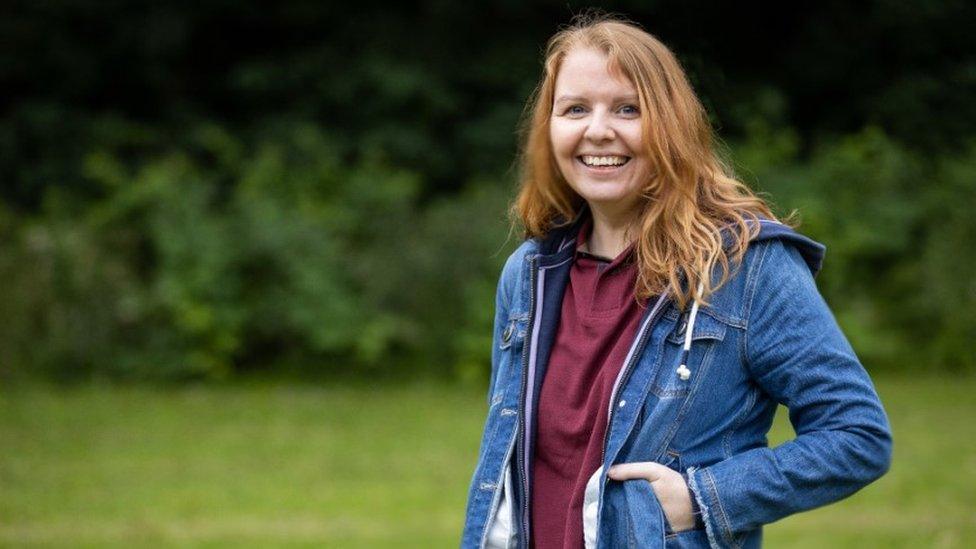Coronavirus: 'I survived, but am now living a nightmare'
- Published
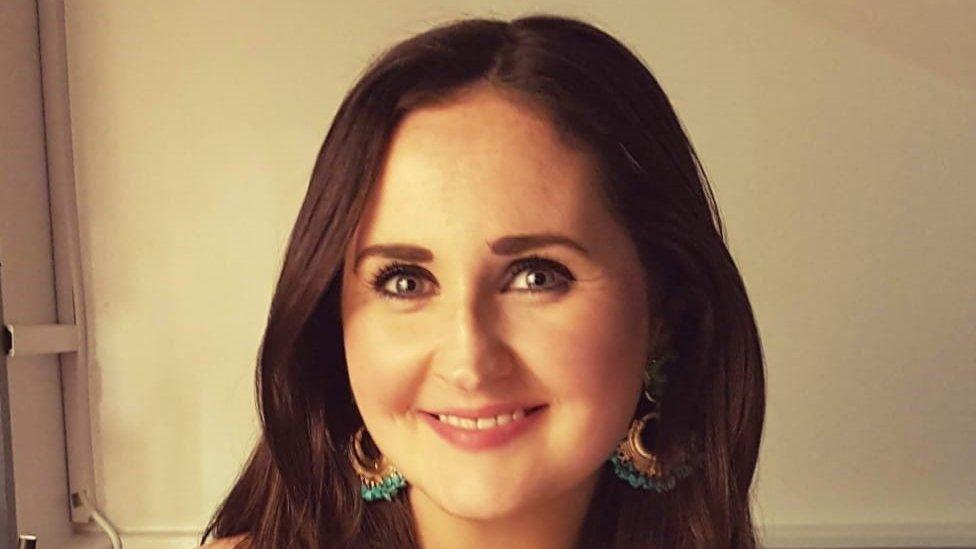
Jennifer says her husband first started to develop symptoms after a trip to County Longford in February
When Jennifer Duddy was admitted to hospital with coronavirus, she said goodbye to her young family wondering if she would ever see them again.
The 32-year-old accountant, who has asthma, first experienced symptoms of the virus in March, but says she was refused tests on several occasions.
Initially, most people with symptoms were told to stay at home and self-isolate.
Her husband, Jamie, also had symptoms, but while his symptoms slowly started to lessen, Jennifer's got worse and eventually she was admitted to Belfast's Mater Hospital with breathing difficulties.
She spent seven days there being treated for coronavirus.
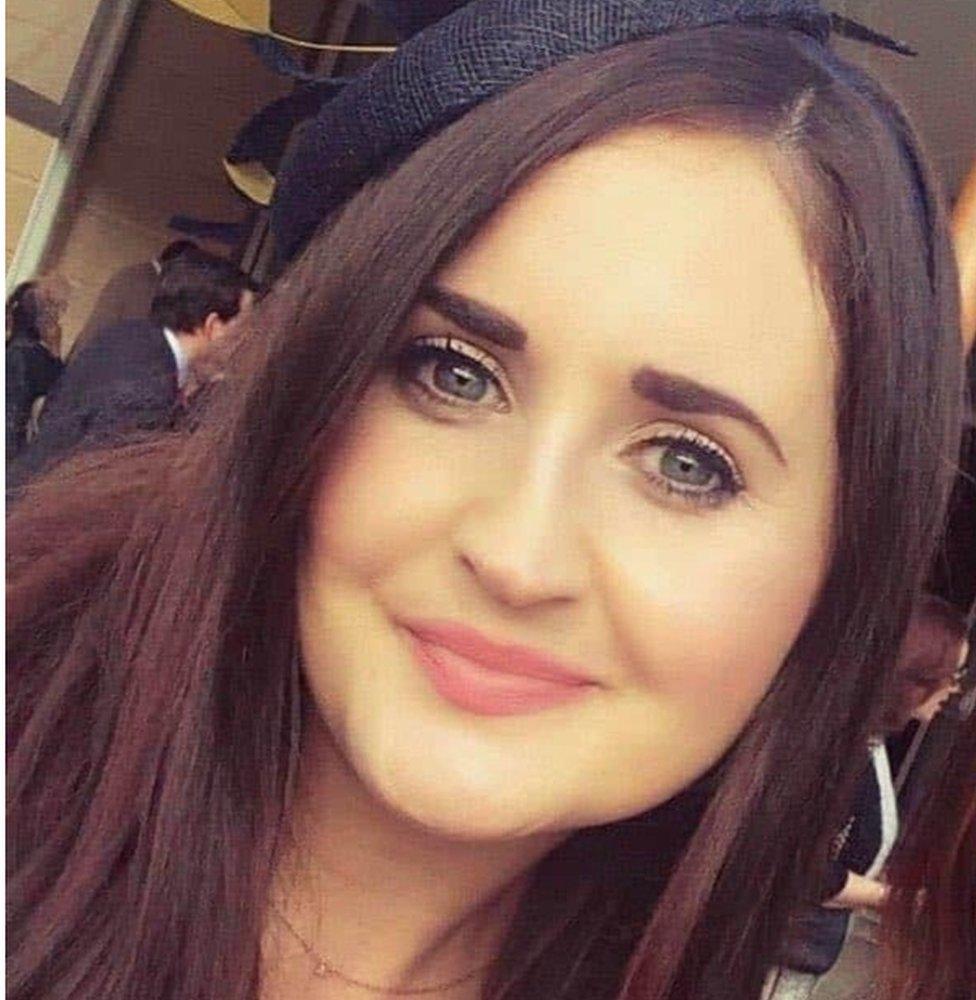
Jennifer is asthmatic but had always been in good health
When she was discharged, she knew it would take time to recover fully, but was optimistic and excited to again cuddle her eight-year-old daughter, Chloe, and one-year-old son Ryan.
"A lot of tears were shed in those first two months," Jennifer told BBC News NI.
"I was on so much medication when I was in hospital that you start to feel a lot better but whenever you get out, you obviously can't have that level of medication home with you, so you just crash back down."
Months later, she is still experiencing heart palpitations, breathlessness, brain fog, dizziness and extreme fatigue.
"You're not living a life, you're just existing," she said.
"It goes from one day to another and nothing happens, you just want to go to bed."
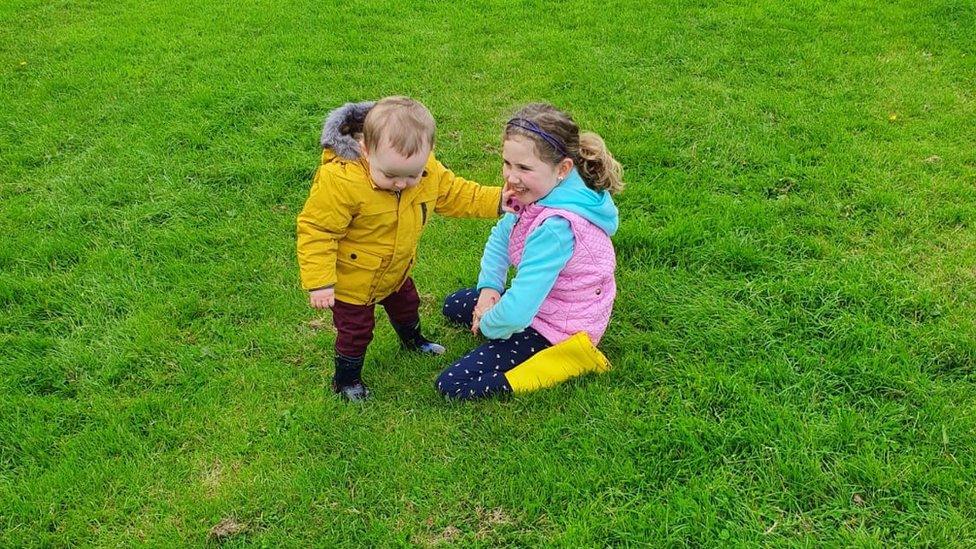
Taking Ryan and Chloe to the park has become a challenge for Jennifer
Thankfully, Jamie's mother had moved in to help but Jennifer says that it is "awful, knowing that you are potentially putting someone else's life at risk".
"I went two months without even holding Chloe or Ryan and it broke my heart, but then I didn't even have the energy to talk to them.
"I was so sick I couldn't even listen to them, I was just exhausted.
"We were one of those families who rarely had a free Saturday and now I don't even have the energy for a conversation."
'An actual living nightmare'
Aside from her other symptoms, Jennifer has continued to lose weight due to regular waves of sickness and loss of appetite.
Doctors suspect she has developed ME, also known as chronic fatigue syndrome, as a result of the virus.
"It has been an actual living nightmare," said Jennifer.
She has joined online support groups and met many people who are experiencing similar after effects.
"Our lives are completely on hold - we can't do anything.
"If I'm able to go to the park with the children alone for 15 minutes then it's been an outstanding day.
"My husband has essentially become a single parent. He does everything. It's so much stress, mentally and physically."
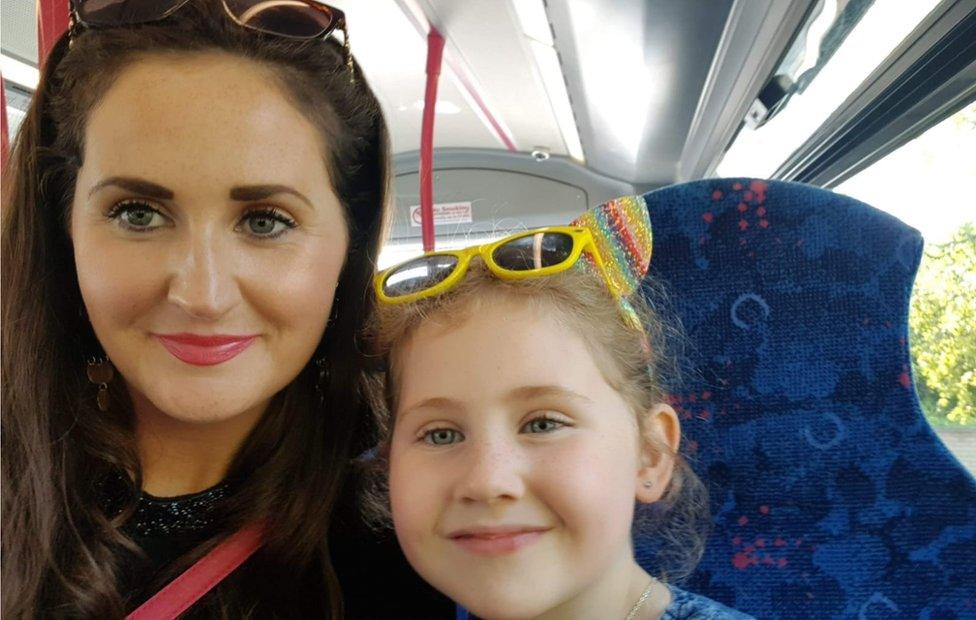
Jennifer says the last few months have been hard on her daughter Chloe, who she is very close to
As for the future, Jennifer admits that she is worried, especially if people refuse to wear face coverings to try to limit the spread of Covid-19.
On Thursday, the NI Executive announced that face masks would become mandatory in shops and other enclosed spaces from August 10.
She said: "We can't afford to get coronavirus again.
"It has already caused so much upset to our family, but if people aren't going to wear masks then we can't go out.
"I'm asthmatic and my breathing is still not great and I can wear a mask - so for the majority of people, they can too.
"I wish people would see that coronavirus is still out there. Everyone can't just forget about it and relax.
"If you have the side effects that I have had, your life will be completely on hold."
'A lot to learn'
Dr Michael Head, senior research fellow in global health at the University of Southampton, told the BBC that while little is known at this stage about long-term effects of the virus, stories like Jennifer's are becoming increasingly common.
He said that "a lot of people have reported feeling terrible even months later, so it is going to be a big problem for policy makers and the health service going forward".
"There is evidence emerging that there are lots of longer side effects," said Dr Head.
"It can pretty much affect every organ in the body, it is a nasty virus and there is still a lot to learn about it."
Contact tracing
In a bid to limit the spread of Covid-19 in Northern Ireland, the Department of Health encouraged people to download its new contact tracing app.
Last week, Northern Ireland became the first part of the UK to launch an app for tracking and tracing coronavirus.
- Published6 August 2020
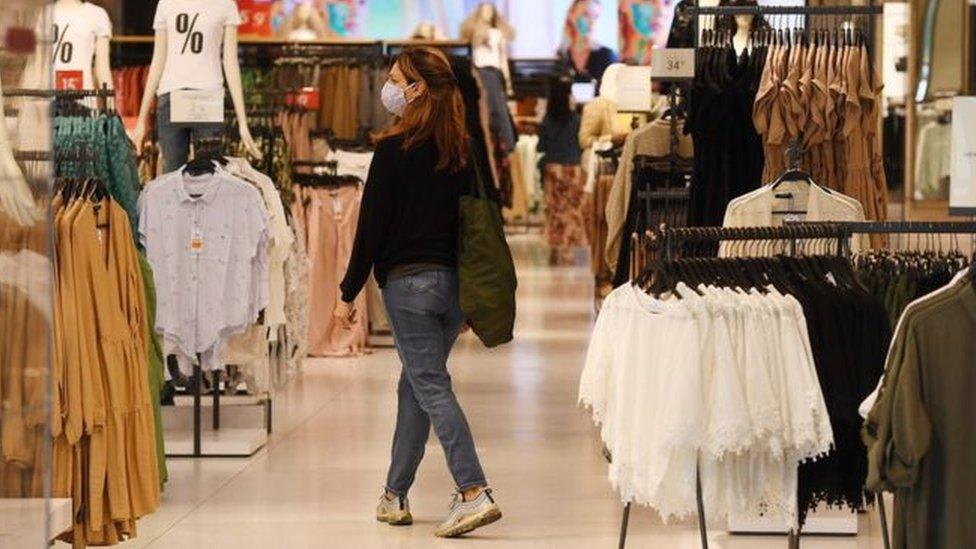
- Published7 July 2020
